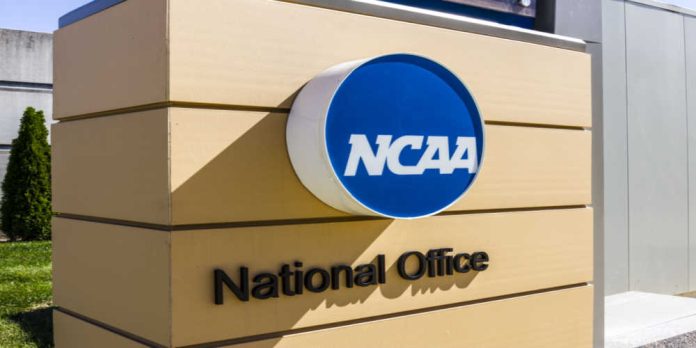When the NCAA released a report detailing the results of a survey revealing that almost 60% of college students – aged 18-21 – had engaged in some form of sports betting in the last year, there was an overriding sense of consternation.
There was unease that such a high proportion of students had engaged in sports betting, particularly when 18-20 year-olds often cannot legally bet.
Yet, Casey Clark, SVP of the American Gaming Association, explained that it is essential to fully comprehend those figures, which actually show that the NCAA’s definition of sports betting is perhaps more vague than meets the eye.
Clark noted that daily fantasy and betting pools are included in the numbers, which are in fact legal for those over 18.
While lauding the research that the NCAA has produced, Clark pushed back: “They take a pretty broad definition of sports betting, including a lot of casual betting activities, a lot of which are legal for 18 to 20-year-olds in the US. So, their number was pretty high in terms of what they were claiming to be the percentage of bettors from college.
“If we break those numbers down a little bit further, it’s a lot less. 27.5% of the respondents placed a traditional mobile sports bet and half of that placed a bet at a brick-and-mortar sportsbook. The rest of those numbers really reflect things like daily fantasy and betting pools and other things that are often lumped into sports betting.”
Nevertheless, the figures are still concerning for an organization that represents operators who are active in legal, regulated markets.
If one minor bets on sports, Clark explained, then that is one too many, and more work needs to be done to thwart the black market’s potential grip on America’s youth and send customers over the age of 21 toward regulated operators.
“The illegal market continues to prey on vulnerable populations, including young people,” Clark told SBC Americas. “It’s important that every stakeholder involved here works together to bring sports betting out of the shadows and into the regulated marketplace to equip people who are 21 and over with the right tools and education to understand how they can bet responsibly.
“We have to work really aggressively and you’ve seen a lot of that from the AGA over the last year, and you’ll continue to see it work really aggressively to get law enforcement at all levels to crack down on them so that we aren’t seeing vulnerable populations continue to be engaged by them.”
Researchers analyzed why students place bets on campus to determine how to tackle these issues and found that 59.2% of student bettors do so primarily to win money, something which will likely cause concern within the RG community.
Of further interest in relation to RG strategy, 36.7% of respondents agreed with the statement: “If I were to frequently engage in sports betting activities, I could consistently make a lot of money.”
Despite this, the AGA’s SVP was upbeat about some of the work that the organization and its members are doibng to promote responsible betting to young people. Clark pointed towards the AGA’s Have A Game Plan. Bet Responsibly initiative, which promotes RG tools to players of all ages.
He also cited the work of others in the ecosystem to make young people aware of the risks of betting: “Anybody under 21 who is betting on sports in America is a problem. Any number of underage people engaging in this activity is too many.
“I’d suggest that there’s a lot that goes into ensuring that we have the right framework in place to protect the most vulnerable populations and to not inadvertently punish operators who are playing by the rules, going through really robust licensing processes, and paying significant taxes.
“You see operators like FanDuel and DraftKings and BetMGM using their resources to ensure we’re bringing the right kind of messaging for consumers. (There’s also) EPIC’s partnership with the NCAA and their education program going directly to campuses. I think there’s just a lot going on that we’re going to need to continue to do.”
Sportsbook operators have come in for a host of criticism for their relationship with college campuses. Notably, Caesars‘ relationships with LSU and MSU, both of which are now terminated, as well as SuperBook’s deal with Denver have been chastised by many for pushing sports betting into minors’ views too much.
While those relationships were winding down regardless, the AGA made a move to ensure no more relationships of the same ilk are established in an update of its Responsible Marketing Code For Sports Wagering. The update bans members from partnering with colleges for marketing purposes.
“There’s no interest in additional partnerships from the sportsbook side and there doesn’t appear to be interest in that from the University side.
“But that’s not to say that there aren’t productive relationships or even financial relationships that could exist between gaming companies and colleges to help bring responsible gaming education or tools to campus not just for athletes, but for all students. I think there are productive ways that the gaming industry and universities can work together.
“In terms of the kinds of deals that we saw over the past few years, I’d be surprised if those weren’t all wound down over the next year. And certainly, we won’t see any new ones.”















